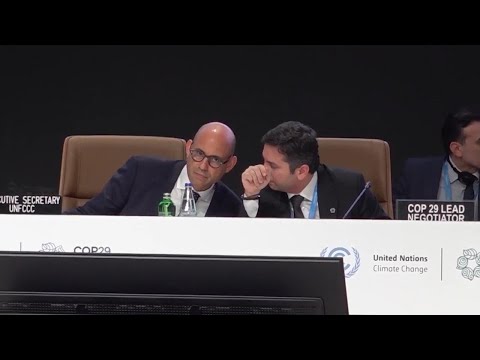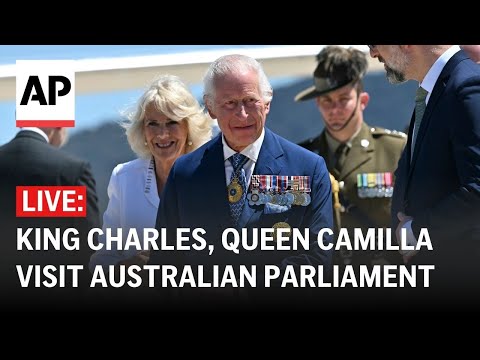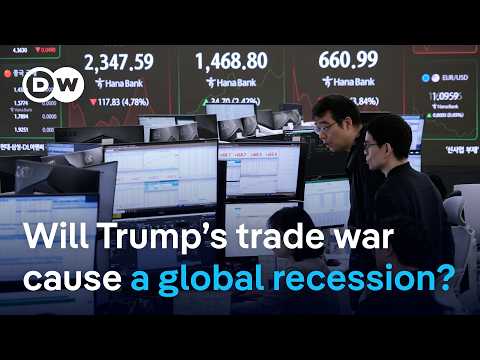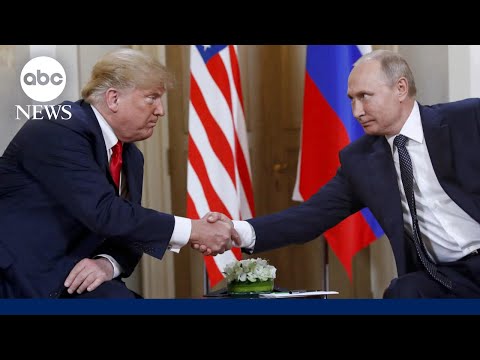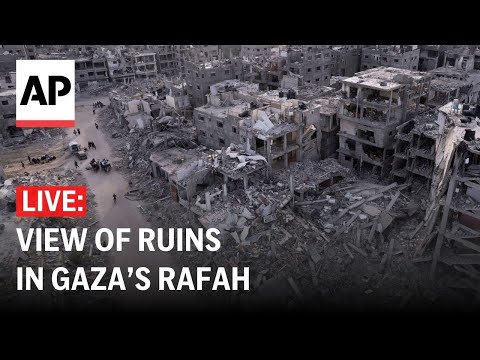(24 Nov 2024)
RESTRICTION SUMMARY:
ASSOCIATED PRESS
Baku, Azerbaijan – 24 November 2024
1. Wide of screen showing COP29 President Mukhtar Babayev chairing closing ceremony
2. Wide of officials on stage, from left to right, UNFCCC Executive Secretary Simon Stiell, Lead negotiator and Azerbaijan’s deputy foreign minister Yalchin Rafiyev, COP29 President Mukhtar Babayev
3. Rafiyev and Stiell talking
4. US climate envoy John Podesta (left), US deputy climate envoy Sue Biniaz (middle), and EU climate commissioner Wopke Hoekstra talking
5. African country negotiators talking, left is Ali Mohamed, chair of the African Group of Negotiators
6. Chinese climate envoy Liu Zhenmin talking with other negotiators
7. Wide of officials on stage having a discussion
8. Wide of Colombian Environment Minister Susana Muhamad (left) taking photos with other participants
8. Wide of closing plenary
10. Wide of Hofstra talking with COP29 Lead Negotiator
11. Various of audience
12. Wide of COP29 sign and screen
13. Wide of Babaye pounding gavel to approve the new collective quantitive goal and applauding
14. Various of officials on stage embrace each other to celebrate
15. Various of participants applauding
16. Wide of screen showing Indian negotiator Chandni Raina speaking
18. Various of audience applauding after Raina’s speech
19. Wide of closing plenary
STORYLINE:
United Nations climate talks adopted a deal to inject at least $300 billion annually in humanity’s fight against climate change, aimed at helping poor nations cope with the ravages of global warming in tense negotiations in the city where industry first tapped oil.
The $300 billion will go to developing countries that need the cash to wean themselves off the coal, oil and gas that causes the globe to overheat, adapt to future warming and pay for the damage caused by climate change’s extreme weather.
It’s not near the full amount of $1.3 trillion that developing countries were asking for, but it’s three times a deal of $100 billion a year from 2009 that is expiring.
Some delegations said this deal is headed in the right direction, with hopes that more money flows in the future.
It was not quite the agreement by consensus that these meetings usually operate with and developing nations were livid about being ignored.
COP29 President Mukhtar Babayev gaveled the deal into acceptance before any nation had a chance to speak.
When they did they blasted him for being unfair to them, the deal for not being enough and the world’s rich nations for being too stingy.
“It’s a paltry sum,” India negotiator Chandni Raina said, repeatedly saying how India objected to rousing cheers. “I’m sorry to say we cannot accept it.”
Countries also anticipate that this deal will send signals that help drive funding from other sources, like multilateral development banks and private sources.
That was always part of the discussion at these talks — rich countries didn’t think it was realistic to only rely on public funding sources — but poor countries worried that if the money came in loans instead of grants, it would send them sliding further backward into debt that they already struggle with.
AP video by Olivia Zhang
===========================================================
Clients are reminded to adhere to all listed restrictions and to check the terms of their licence agreements. For further assistance, please contact the AP Archive on: Tel +44(0)2074827482 Email: info@aparchive.com.
Find out more about AP Archive: http://www.aparchive.com/HowWeWork
Twitter: https://twitter.com/AP_Archive
Facebook: https://www.facebook.com/APArchives
Instagram: https://www.instagram.com/APNews/
You can license this story through AP Archive: http://www.aparchive.com/metadata/youtube/0d709afc73c749f29a0ae8751e80dc6f
Author: AP Archive
Go to Source
News post in November 29, 2024, 3:04 am.
Visit Our Sponsor’s:
News Post In – News

